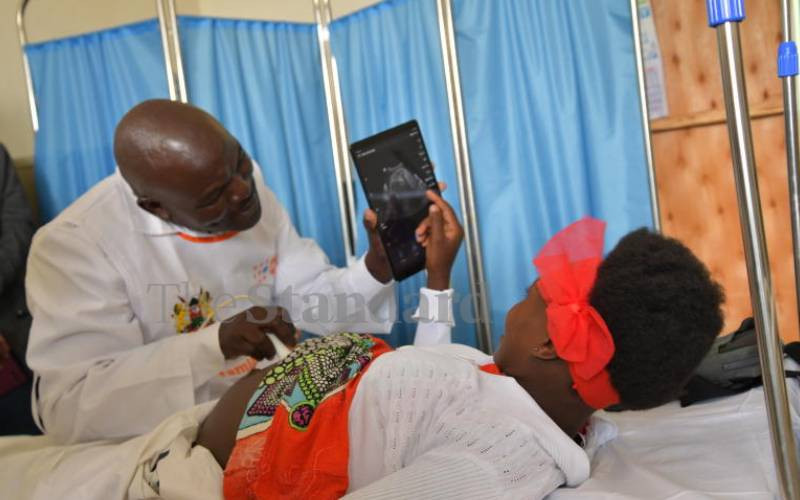×
The Standard e-Paper
Join Thousands Daily

As 20-year-old Susan Boke lies nervously on an examination bed, Jackson Nyanamba, a midwife at Ntimaru Sub-County Hospital, Ntimaru West, Kuria East, Migori County conducts an ultrasound scan of her pregnant belly.
With a tablet in his left hand and a probe in his right, he moves it skilfully, applying just enough pressure upon the enlarged abdomen.